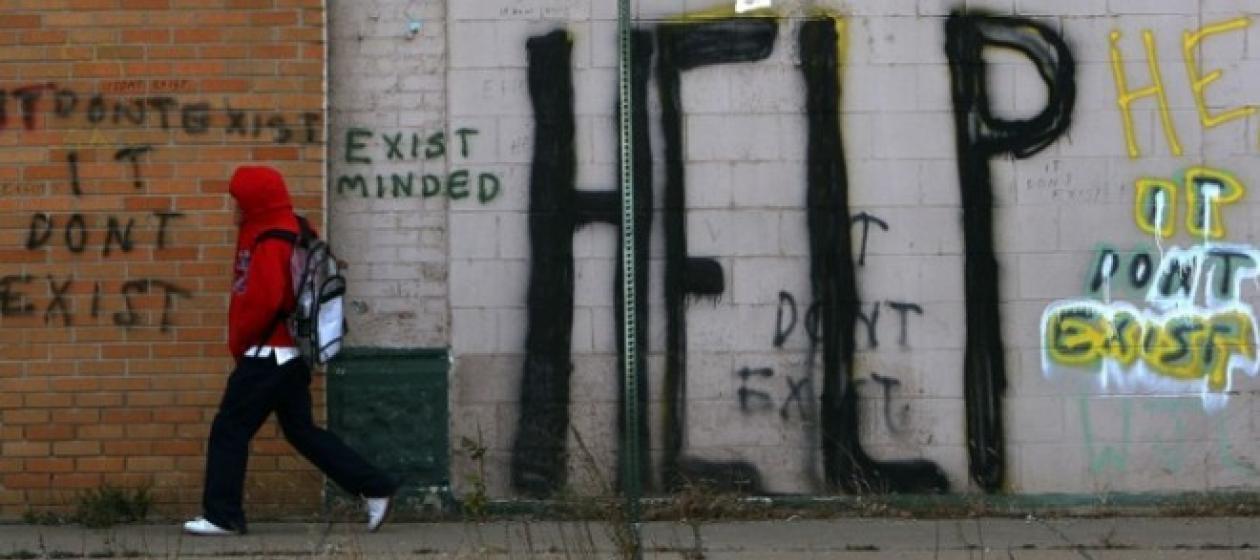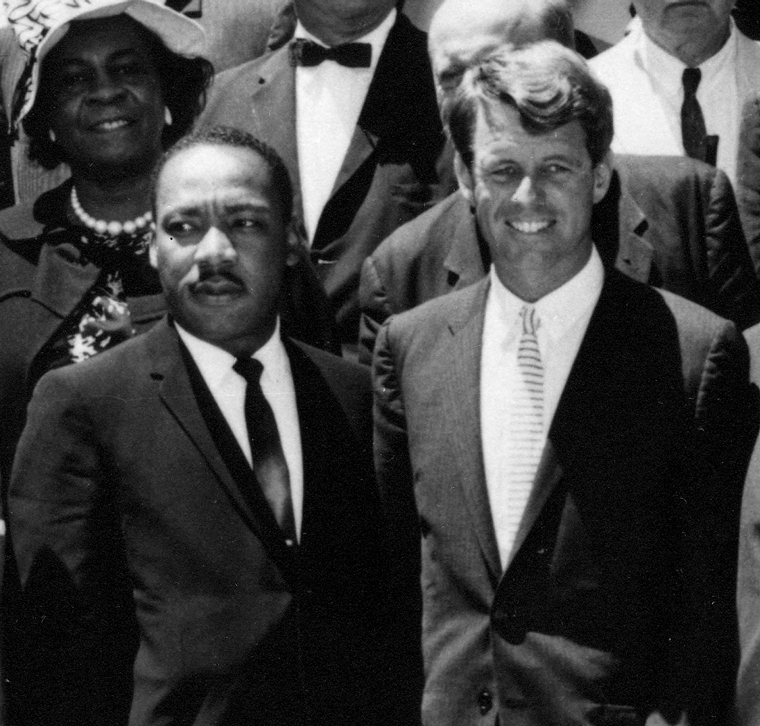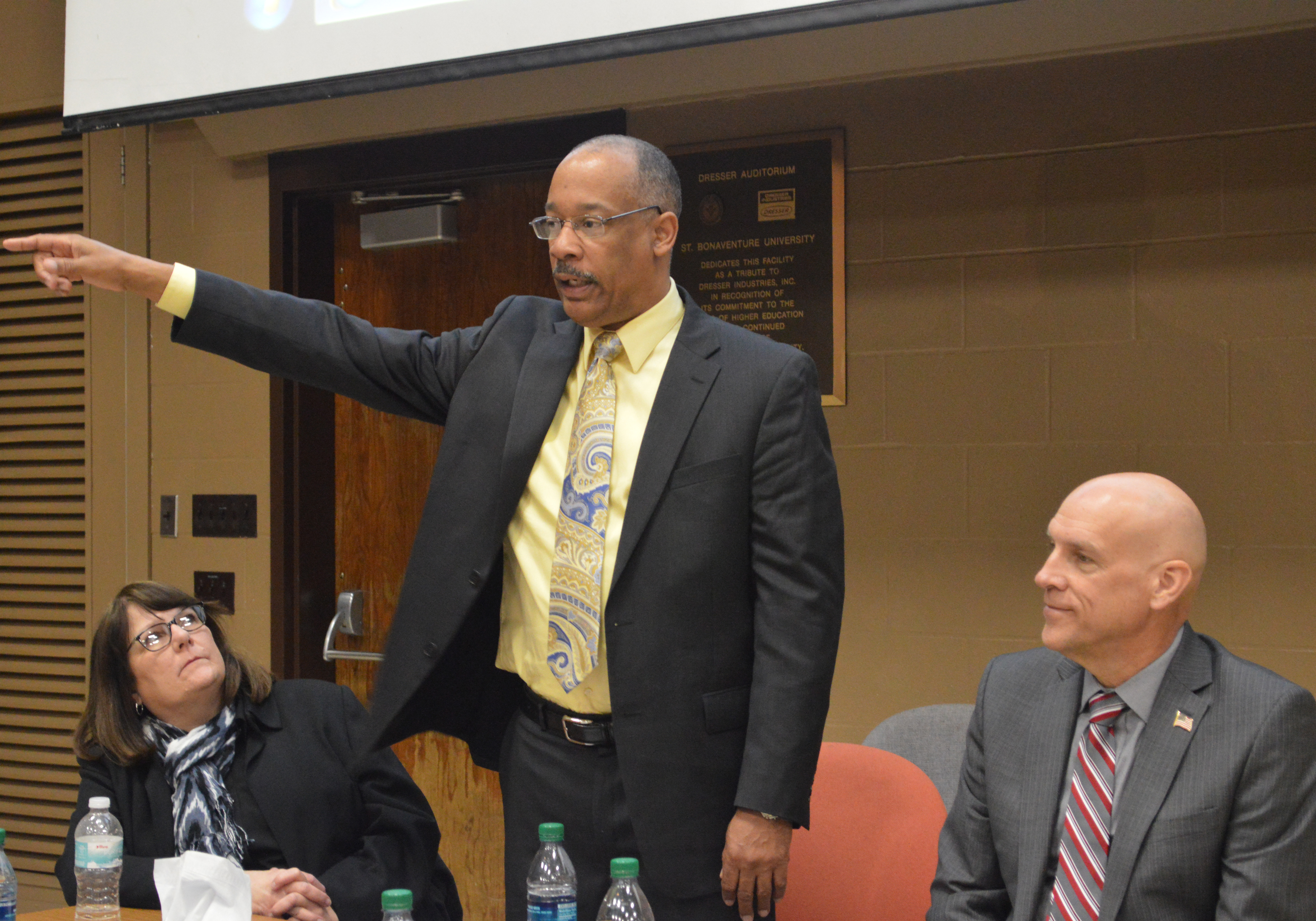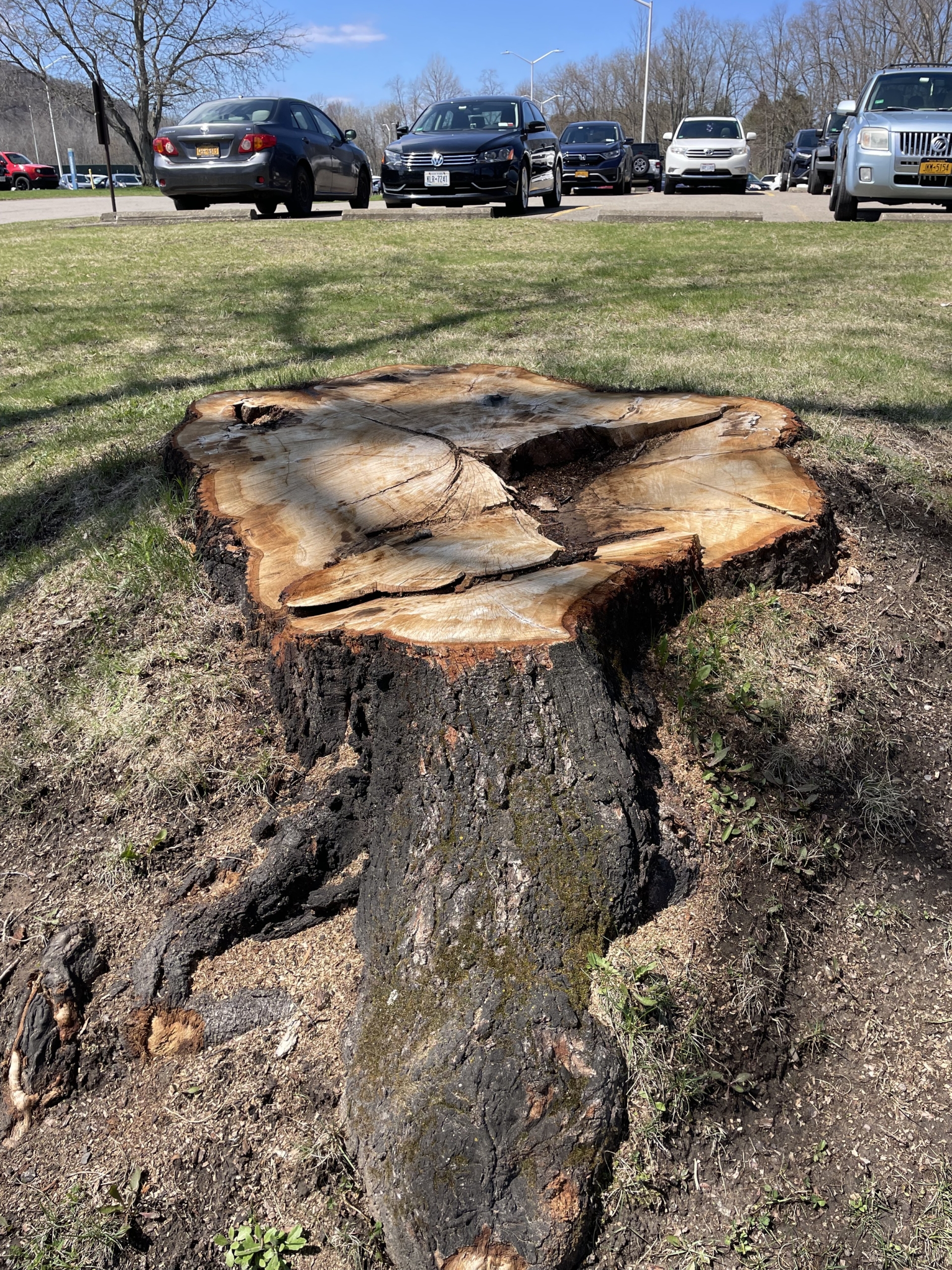By Lian Bunny
Photo Editor
American criminal justice system or injustice system?
Breea Willingham, Ph.D., a former Bonaventure journalism and mass communication professor, argued the latter in her talk titled “Race, Crime and the American Injustice System.”
The lecture, given last Friday in the Walsh Amphitheatre, replaced the All Bonaventure Reads (ABR) author’s talk.
Bryan Stevenson wrote this year’s ABR book, “Just Mercy: A Story of Justice and Redemption.”
According to Chris Brown, director of First-Year Experience and Orientation at Bonaventure, Stevenson had too many prior commitments to speak, so Brown proposed Willingham, assistant professor in criminal justice at Plattsburgh State University, speak instead.
Stevenson’s nonfictional work involves a pro-bono death row lawyer who helped African Americans turn over unjust convictions. Willingham pursued a Ph.D. in American studies, and the topic of her dissertation related to the themes in Stevenson’s book.
Brown also suggested the talk be included in the #RaceMatters series schedule.
The #RaceMatters campaign stemmed from a student who posted a racially charged tweet referring to the Baltimore riots last semester. According to Rick Trietley, vice president of student affairs, the university created a racial bias education-planning group in response to the controversy.
Willingham’s talk marked the first speech in the #RaceMatters series.
“I want us to have a conversation,” Willingham said to start her discussion. “I’m not here to sugarcoat anything for you.”
She said she recently found out her brother, who has been sentenced to life in prison for a murder she said he didn’t commit, had been denied for parole. He has been in prison for 24 years. He turned 50 years old in June.
She added from 2006 to 2012, a white police officer has killed a black person at least twice a week.
“I am offended by an injustice system that is intent on incarcerating disproportionately more black men and women,” Willingham said.
Willingham brought up initiatives such as #SayHerName, dedicated to bringing attention to black women or girls who are also brutalized by police. She said there are over 180 cases recorded of black women who were lynched during slavery times in America, but many people don’t hear about these instances of black women’s struggles.
According to Willingham, 51 black women in America have recently been killed or otherwise victimized by police. She did not include the specific time frame. In supporting the #SayHerName campaign, Willingham read the 51 names aloud for the audience.
“When (people) ask, ‘Is the justice system failing us?’ I wonder which ‘us’ (they’re) talking to,” said Willingham.
According to Willingham, white people need to “take off their blinders” and join the fight for actual progress to be made. She said Bonaventure should start now.
“Don’t rest on the fact that this is Olean,” Willingham said. “You don’t need to wait. Just start having a conversation. It’s supposed to be uncomfortable. There’s nothing comfortable about racism.”
However, Jasmine Shephard, a freshman early childhood and special education major, said Willingham’s goal of “having a conversation” with the audience fell short of expectations.
“I felt any conversation that did occur went one of two ways: She either agreed with what you said or she was against it and tried all she could to put you and your comment down,” Shephard said. “Mainly, I feel she is too emotionally invested and biased to have a good, healthy conversation with her audience.”
Shephard said she found it specifically rude when a boy in the back tried to ask a question, and Willingham didn’t allow him to finish before she stopped him. Shephard said she felt Willingham presssured him, and he didn’t get his point across like he intended.
Shephard also said she asked a question during the “Q & A” session at the end of the talk and wasn’t properly understood.
“One of my questions or comments was about every race having their own baggage,” Shephard said. “My answer to the question would be that everyone has their own baggage and so does each race. This baggage may be big for one person or race and small for another. I agreed partially with her opinion on how black people have heavier baggage than white people but not on the matter of white people having no baggage.”
Shephard added she doesn’t think Bonaventure has a racism problem.
“Everyone here is very nice and like family,” Shephard said. “There is always something we can do to get rid of racism, but I don’t think I would join the cause. If I started up a club, it would not be on just equality for one race but how to make them all equal.”
bunnyla13@bonaventure.edu






